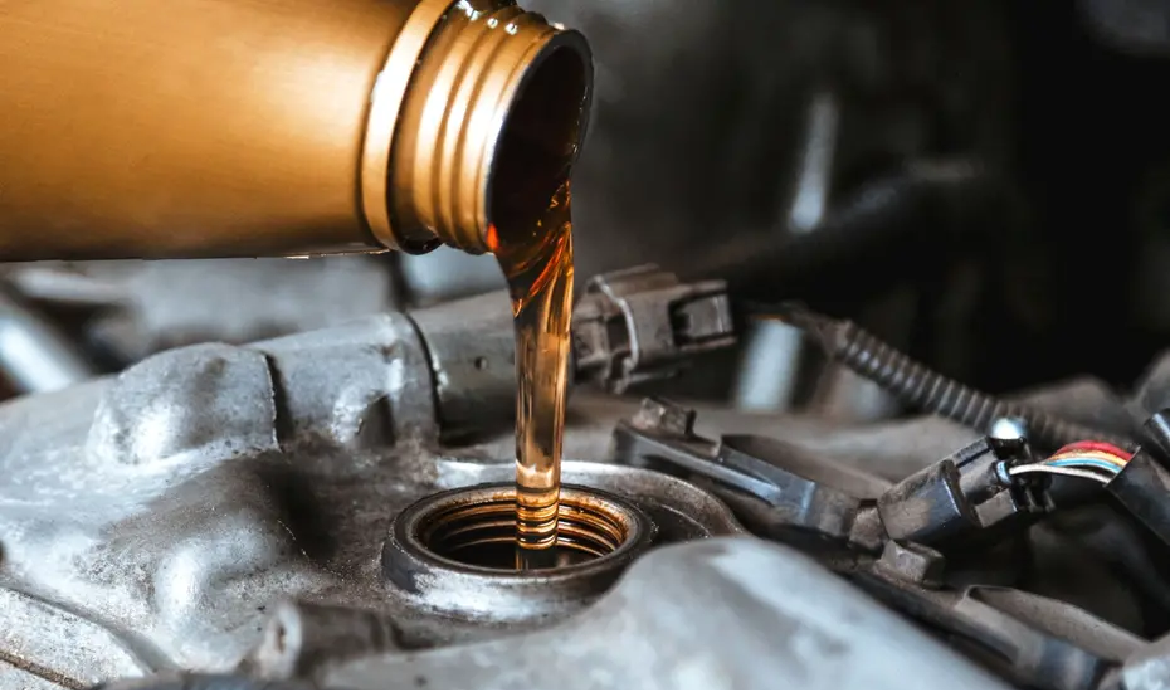- Your cart is empty
- Continue Shopping
Petrol Engine Oil: A Comprehensive Guide
-
Hybr Auto India Pvt Ltd
- Posted on

Introduction
Petrol engine oil plays a crucial role in maintaining the performance and longevity of your vehicle’s engine. It not only lubricates the moving parts but also helps in cooling, cleaning, and protecting the engine. In this blog, we’ll delve into everything you need to know about petrol engine oil, from its composition to choosing the right one for your vehicle.
Hybr Auto India Pvt Ltd
What is Petrol Engine Oil?
Petrol engine oil, also known as motor oil, is a lubricant specifically designed for petrol engines. It is composed of base oils and various additives that enhance its performance. These additives include detergents, dispersants, anti-wear agents, and viscosity index improvers, each playing a vital role in maintaining engine health.
Functions of Petrol Engine Oil
Lubrication: The primary function of engine oil is to reduce friction between the moving parts of the engine, such as pistons, cylinders, and crankshafts. This reduces wear and tear, prolonging the engine’s life.
Cooling: As the engine runs, it generates heat. Engine oil helps in dissipating this heat away from the combustion chamber and other high-temperature areas, preventing the engine from overheating.
Cleaning: Engine oil contains detergents and dispersants that prevent sludge and varnish build-up. These additives break down contaminants and hold them in suspension, ensuring that the engine remains clean.
Sealing: Engine oil helps in sealing the gaps between the piston rings and cylinder walls, ensuring that the combustion gases do not escape, thereby improving engine efficiency.
Protection: The anti-wear additives in engine oil form a protective layer on the engine’s metal surfaces, minimizing wear and preventing corrosion.
Types of Petrol Engine Oils
Mineral Oil: Derived from refined crude oil, mineral oil is the most basic type of engine oil. It is suitable for older vehicles or those with low mileage. However, it lacks the advanced properties found in synthetic oils.
Synthetic Oil: Synthetic engine oil is chemically engineered to provide superior performance. It offers better lubrication, higher temperature stability, and longer service intervals compared to mineral oil. It is ideal for modern engines and high-performance vehicles.
Semi-Synthetic Oil: A blend of mineral and synthetic oils, semi-synthetic oil offers a balance between cost and performance. It provides better protection and performance than mineral oil, making it a popular choice for a wide range of vehicles.
High-Mileage Oil: Designed specifically for vehicles with over 75,000 miles on the odometer, high-mileage oil contains additives that condition seals, reduce oil consumption, and minimize leaks.


Viscosity and Engine Oil Grades
Viscosity refers to the thickness of the oil and its ability to flow at different temperatures. Engine oils are classified by their viscosity using a numerical grading system established by the Society of Automotive Engineers (SAE). Common grades include:
SAE 5W-30: Suitable for cold climates, this oil flows easily at low temperatures, ensuring easy starts in winter.
SAE 10W-40: A versatile oil that provides good performance in both hot and cold conditions.
SAE 20W-50: Ideal for warmer climates or older engines that require thicker oil for better protection.
The “W” stands for winter, indicating the oil’s viscosity at low temperatures, while the second number indicates its viscosity at operating temperature.
Choosing the Right Petrol Engine Oil
Selecting the right engine oil for your vehicle is crucial for optimal performance and engine longevity. Here are some factors to consider:
Manufacturer’s Recommendation: Always refer to your vehicle’s owner’s manual for the recommended oil type and viscosity grade.
Driving Conditions: Consider your typical driving conditions. For example, if you often drive in extreme temperatures or tow heavy loads, a synthetic oil with a higher viscosity might be more suitable.
Vehicle Age: For older vehicles, high-mileage oil can help condition seals and reduce leaks.
Oil Additives: Look for oils with additional additives that offer extra protection against wear, corrosion, and sludge build-up.
When to Change Petrol Engine Oil
Regular oil changes are vital for maintaining engine health. Most manufacturers recommend changing the engine oil every 5,000 to 7,500 miles, but this can vary based on the oil type and driving conditions. Signs that it’s time for an oil change include:
- Dark and dirty oil
- Increased engine noise
- Oil change or check engine light is on
- Decreased fuel efficiency


